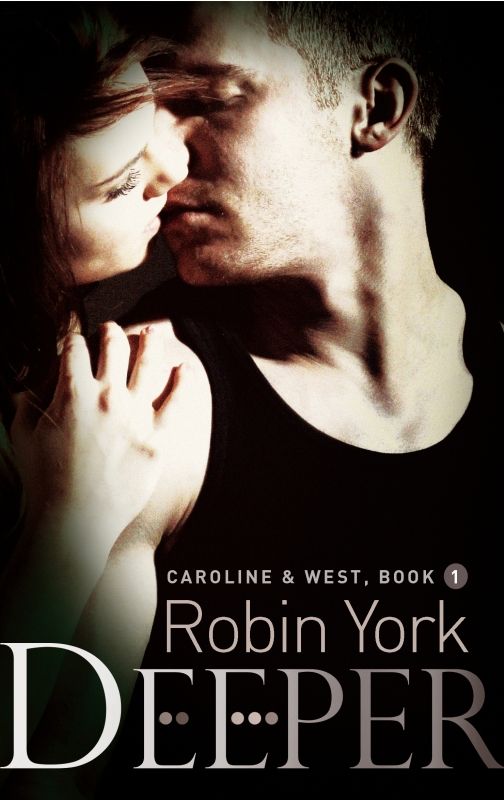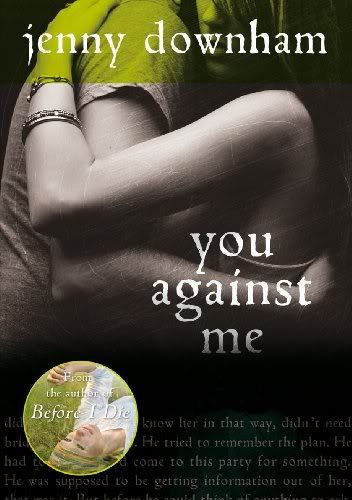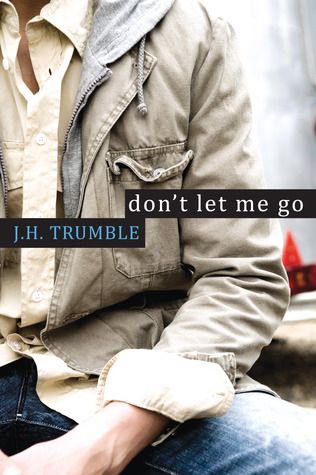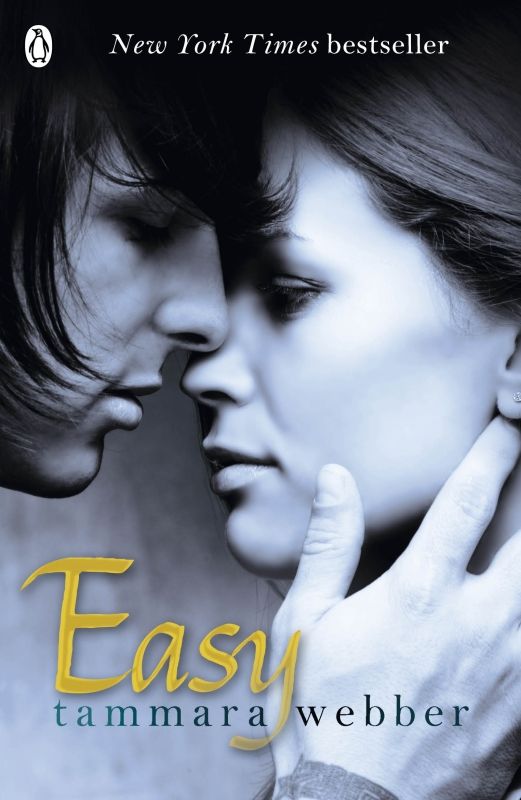 Forbidden by Tabitha Suzuma (review copy)
Forbidden by Tabitha Suzuma (review copy) -
She is pretty and talented - sweet sixteen and never been kissed. He is seventeen; gorgeous and on the brink of a bright future. And now they have fallen in love. But... they are brother and sister.
Seventeen-year-old Lochan and sixteen-year-old Maya have always felt more like friends than siblings. Together they have stepped in for their alcoholic, wayward mother to take care of their three younger siblings. As defacto parents to the little ones, Lochan and Maya have had to grow up fast. And the stress of their lives—and the way they understand each other so completely—has also also brought them closer than two siblings would ordinarily be. So close, in fact, that they have fallen in love. Their clandestine romance quickly blooms into deep, desperate love. They know their relationship is wrong and cannot possibly continue. And yet, they cannot stop what feels so incredibly right. As the novel careens toward an explosive and shocking finale, only one thing is certain: a love this devastating has no happy ending. From Goodreads.
WARNING! To review this book the way I want to, I need to include some slight spoilers. Please read no further if you're planning on reading this book and don't want it spoilt for you.
Most of the books I'm covered for the Sex Crimes part of Sex in Teen Lit Month are related to sexual assault, rape, and revenge porn, so this is a slight deviation from what you've been reading about. But it is a crime for family members to have sexual relationships with each other (well, except cousins, at least in the UK), so I thought this would be a good book to cover for the event. I knew it was going to be a difficult read, and it was. Sadly, it didn't amaze me like I hoped it would, but it's still a pretty good, though disturbing, story.
Maya and Lochan have it hard. Their dad left five years ago, and their mother is a selfish, neglectful alcoholic who is hardly ever around, so it's down to them to care for their younger siblings, Kit, Tiffin and Willa. They have to get them to school, pick them up, feed them, bath them, help with with their homework, play with them and sort out bedtimes, and do the household chores, as well as get to school themselves. They're desperate to keep social services from finding out, and only have each other to rely on. A bond has formed between them, stronger than that of any other brother and sister. Their bond develops into feelings siblings shouldn't have for each other, but Maya and Lochan find it difficult to resist the attraction between them. They want to express their love for each other, but how can they? It's against the law, it's incest.
Given it's subject matter, I've wanted to read Forbidden by Tabitha Suzuma for quite a while, but also because of it's subject matter, I have been wary of it. It's not really something anyone wants to think about, is it? I am firmly in the "it's wrong!" camp, so I wasn't sure how I would react to reading this book. It made me quite uncomfortable, but because of their home life, I could understand it. The only person each has to rely on is the other. Their mother is abusive through her neglect, and having to deal with everything for five years - since Lochan was 12 and Maya was 11 - has brought the two closer, and, in my opinion, had a psychological affect on them - I don't believe they fell in love like any other couple would. I don't know if this is actually the case, I'm not a psychologist; I'm not sure if it's my own way of trying to justify and understand what happened, because I'm unable to accept or stomach the idea of two siblings falling in love that the actual truth for this story. I just found it really difficult to accept what they were doing; I felt sorry for them, but I had a problem with what they were doing. I really didn't like it when they were kissing, but when things went further, I wished they'd go back to kissing as it felt "safer", easier for me to deal with.
There's a point where Lochan has done some research into incest, which I found fascinating, but also, in my opinion, hints towards their psychological issues; he and Maya are different because of their home situation.
'There is actually precious little information to be found on consensual incest, though there is plenty on the non-consensual kind, which seems to be the only type most people think exists. I have thoroughly searched for online testimonies but found only two that had actually made it into the public domain - neither of them in the UK and both between siblings who met again as adults after being separated at birth.' (p335)
It wasn't just the fact that they were siblings that made me uncomfortable. Even if they weren't related, I'd still have serious problems with their relationship. It's
so unhealthy! It's desperate and bordering on obsessive. Several times they try to keep away from each other in the romantic sense, but they struggle so much with it, they're so deeply unhappy they're almost like zombies, and it affects their health; Lochan has a panic attack when he tries to deal with staying away from Maya. This is not healthy! If this is not evidence that I'm kind of right, that there's some serious psychological issues going on with them... I don't know. It just made me so uncomfortable to read how desperately they wanted to be with each other - not sexually necessarily, just as a couple. There was no melodramatic, "I'll die without you!", but it had that kind of feel. They really just couldn't cope without each other.
Despite how uncomfortable the story made me, and my opinions of their relationship, as the book is told from the alternating points of view of both Maya and Lochan, I couldn't help but see where they were coming from. I felt for them, I felt sorry for them - again, because of problems I thought they had - but I still couldn't condone it, or root for them. Yet it still made me think, and question a few things.
'So many superficial liaisons surround me, so many guys just looking for sex, for another conquest to add to their brag-list before swiftly moving on. One might struggle to understand why anyone would embark on relationships that lack any real, meaningful emotion, yet nobody judges them for it. They are 'young', 'just having a good time', and sure, if that's what they want, why shouldn't they? But then why is it so terrible for me to be with the girl I love? Everyone else is permitted to have what they want, express their love as they please, without fear of harassment, ostracism, persecution or even the law. Even emotionally abusive, adulterous relationships are often tolerated, despite the harm they cause others. In our progressive, permissive society, all these harmful, unhealthy types of 'love' are allowed - but not ours. I can think of no other kind of love that is so totally rejected, even though ours is so deep, passionate, caring and strong that forcing us apart would cause us unimaginable pain. We are being punished by the world for just one simple reason: for having been produced by the same woman.' (p340-341)
There are a couple of sex scenes in Forbidden, though only one of actual penetration. Most of the sexual encounters are glossed over; you get the gist of what they're doing, but it's not so detailed as to know who's doing what to whom. The penetrative sex scene, however, is on the page. It's not too graphic, but you're told exactly what is going on. I have never felt so ill at ease while reading a sex scene. I was horrified, really, with every step, internally begging them to stop, to not go there, to not cross that line. I couldn't bear it. As a sex scene in a YA novel in general, it's pretty good; it's not gratuitous, and it's pretty realistic and honest. But because of the circumstances, I was just so disturbed by the whole thing, I wanted it to stop. I wanted
them to stop. But there's no way this book could omit or gloss over the penetrative sex scene; it's needed for this story, it's needed for the reader's reaction.
Forbidden also has something to say about sexual abuse and the sexist ideas people have about it, and the discussion Lochan and Maya have is really interesting. Lochan and Maya know what they're doing is illegal, but, as shown in the following excerpt narrated by Maya, Lochan thinks people will believe that, rather than a consensual sexual relationship, what they have is abuse.
'"Abuse?" I exclaim in astonishment. "But who would be abusing who? In abuse, there's an attacker and a victim. How could we be seen as both abusers and abusees?"
[...]
"Maya, come on, think about it. I'd be automatically seen as the abuser and you the victim."
"Why?"
"How many cases of younger sisters sexually abusing older brothers have you read about? Come to think of it, how many female rapists and female paedophiles are there?"
"But that's crazy!" I exclaim. "I could have been the one to force you into a sexual relationship! Not physically, but by - I dunno - bribes, blackmail, threats, whatever! Are you saying that even if I'd abused you, people would still assume I was the victim just because I'm a girl and one year younger?"
Lochan nods slowly [...]. "Unless there was some really strong evidence to the contrary - an admission of guilt on your part, witnesses or something - then, yes."
"But that's so sexist, so unfair!" (p331)
I do wish their home situation was dealt with and worked out. As I've said, I think Lochan and Maya had issues that needed to be solved, and their issues at home solved - long before things got this far. They kept thinking that if social services found out about their mum's neglect, they would getting involved and put them into care. They were so sure that this would be a bad thing because they believed they would be split up, but I think that would have been better for everyone. I know the foster care system gets a lot of flack, but there are people out there who really care. My nan was a foster carer, so I know the difference a safe and secure home and being looked after by someone who genuinely cares can make. And even if they were split up, they would still get to see each other quite regularly. Going into care and getting to parents, and for the kids to see their older brother and sister as exactly that rather than as care-givers would have been better for their relationships. By the end of this book, I think everyone is so emotionally scarred by the situation they've been in for the past five years because of their mother. I would have liked to see this situation resolved, instead of just where things went for Maya and Lochan
There were some things about this book that just didn't sit right with me when it came to realism; I sometimes I had trouble believing Maya and Lochan as characters, they were just a bit too unrealistic sometimes. There were a lot of exclamation marks in this book, exclaiming things that didn't need to be and no-one talks like that. I "hear" dialogue when I read, so "hearing" them talk be so excited or tense or some other emotional extreme all the time, including when they were having just a normal conversation rather than an intense one about them, was so jarring. There were also things they said that teenagers just don't say. Maya, who is 16, would call Lochan "my love", and they would both refer to the younger children as "the little ones", all the time. An adult might say that, but definitely not a teenager - and even an adult wouldn't say it so often.
The ending was both surprising and unsurprising. A while throughout the book I wondered if it would end like it did in one way or another, but as I got closer to the end, I thought it must not, so when it did, I was a little shocked by it. Leading up to that, I finally started feeling really upset for Maya and Lochan. Despite everything I felt about them, in this moment, you can't help the anguish you feel for them, because of what you know
they believe. It does get emotional, and I was moved. I wish there had been a different ending. I truly believe there was a different path their story could have taken, so I was so sad it went the way it did.
Although there were parts of the book I had trouble with, Forbidden is a really good book. It's disturbing and thought-provoking in turn, and a story you won't forget in a while.
Thank you to Definitions at Random House for the review copy.

Buy from:
 Published:
Published: 27th May 2010
Publisher: Definitions
Tabitha Suzuma's Website

 Asking For It: The Alarming Rise of Rape Culture and What We Can Do About It by Kate Harding (proof) - Dominique Strauss-Kahn’s arrest. Congressman Todd Akin’s "legitimate" gaffe. The alleged rape crew of Steubenville, Ohio. Sexual violence has been so prominent in recent years that the feminist term "rape culture" has finally entered the mainstream. But what, exactly, is it? And how do we change it?
Asking For It: The Alarming Rise of Rape Culture and What We Can Do About It by Kate Harding (proof) - Dominique Strauss-Kahn’s arrest. Congressman Todd Akin’s "legitimate" gaffe. The alleged rape crew of Steubenville, Ohio. Sexual violence has been so prominent in recent years that the feminist term "rape culture" has finally entered the mainstream. But what, exactly, is it? And how do we change it?


 Although what happens to Caroline is awful, I feel Deeper is less about the terrible and more about beating it and moving forward. That although it's a disgusting thing to have happened to her, it doesn't have to ruin or be the sole focus of her life. Was it important to you to show this?
Although what happens to Caroline is awful, I feel Deeper is less about the terrible and more about beating it and moving forward. That although it's a disgusting thing to have happened to her, it doesn't have to ruin or be the sole focus of her life. Was it important to you to show this?
 Forbidden by Tabitha Suzuma (review copy) - She is pretty and talented - sweet sixteen and never been kissed. He is seventeen; gorgeous and on the brink of a bright future. And now they have fallen in love. But... they are brother and sister.
Forbidden by Tabitha Suzuma (review copy) - She is pretty and talented - sweet sixteen and never been kissed. He is seventeen; gorgeous and on the brink of a bright future. And now they have fallen in love. But... they are brother and sister.










 Modern Monsters by Kelley York - Vic Howard never wanted to go to the party. He’s the Invisible Guy at school, a special kind of hell for quiet, nice guys. But because his best friend is as popular as Vic is ignored, he went...
Modern Monsters by Kelley York - Vic Howard never wanted to go to the party. He’s the Invisible Guy at school, a special kind of hell for quiet, nice guys. But because his best friend is as popular as Vic is ignored, he went...
 What research did you do for All the Rage? Was there anything that surprised you?
What research did you do for All the Rage? Was there anything that surprised you?
 You were originally a very successful self-published author, but I read you went down the traditional publishing route because of how important Easy was to you.
You were originally a very successful self-published author, but I read you went down the traditional publishing route because of how important Easy was to you.